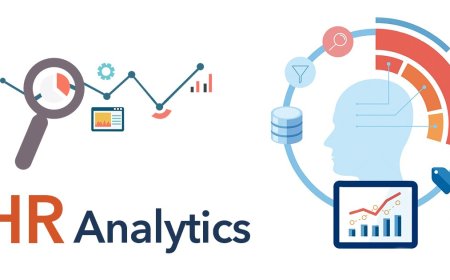Importance of Foundation in Data Analytics Certification
Learn the significance of a solid foundation in data analytics certification. Understand how mastering basic principles enhances your ability to navigate complex data analysis and make informed decisions.

Establishing a solid data analytics foundation is crucial for several reasons. First and foremost, it serves as the backbone for informed decision-making within an organisation. Businesses can gain valuable insights into customer behaviour, market trends, and operational efficiency by analysing data effectively. A strong foundation in data analytics also aids in identifying patterns and correlations within datasets, leading to the discovery of hidden opportunities or potential issues. This can be instrumental in devising strategies for growth, risk mitigation, and process improvement.
The importance of a solid foundation in data analytics cannot be overstated. Think of it as the bedrock upon which you build your data-driven decisions and strategies. Here's why it's crucial
Significance of foundation in analytics
-
Decision Making: According to a report by McKinsey & Company, data-driven organizations are 23 times more likely to acquire customers, six times as likely to retain customers, and 19 times as likely to be profitable as a result.
-
Competitive Advantage: Research from the International Data Corporation (IDC) suggests that by 2025, the global datasphere will grow to 175 zettabytes. Companies that can effectively harness and analyze this vast amount of data will gain a significant competitive edge over those that cannot.
-
Cost Reduction: A study by Forbes found that organizations that use data analytics extensively can reduce their costs by up to 20% and increase their revenue by 10%.
-
Customer Insights: With the proliferation of social media and online platforms, businesses have access to an unprecedented amount of customer data. By analyzing this data effectively, companies can gain valuable insights into customer behaviour, preferences, and sentiment, allowing them to tailor their products and services to better meet customer needs.
-
Risk Management: Data analytics can also play a crucial role in identifying and mitigating risks. By analyzing historical data and identifying patterns and trends, organizations can proactively identify potential risks and take steps to mitigate them before they escalate into larger problems.
-
Innovation: Data analytics can fuel innovation by providing organizations with insights that can lead to the development of new products, services, and business models. For example, companies like Netflix and Amazon have Utilised data analytics to personalize recommendations for their customers, driving increased engagement and sales.
Difficulties of learning in data analytics for beginners
For beginners, diving into data analytics can be challenging due to its multidisciplinary nature, requiring a blend of technical skills, statistical knowledge, and domain expertise. The field's rapid evolution and the multitude of tools and programming languages, such as Python and R, can overwhelm newcomers. Learning data analytics, especially for beginners, can present several challenges. Here are some common difficulties that individuals may encounter
-
Steep Learning Curve: Data analytics involves understanding statistical concepts, programming languages (like Python or R), and various tools. For beginners, the initial learning curve can be steep, as they need to grasp both the theoretical and practical aspects simultaneously.
-
Programming Skills: Many data analytics tools and platforms require programming skills. Beginners may find it challenging to learn a new programming language and apply it effectively to manipulate and analyze data.
-
Mathematics and Statistics Knowledge: A solid foundation in mathematics and statistics is crucial for data analytics. Understanding concepts such as probability, regression analysis, and hypothesis testing can be challenging for those without a background in these areas.
-
Data Cleaning and Preprocessing: Dealing with real-world data often involves cleaning and preprocessing, which can be time-consuming and requires attention to detail. Beginners may struggle with transforming raw data into a usable format for analysis.
-
Choosing the Right Tools and Technologies: The data analytics ecosystem is vast, with numerous tools and technologies available. Beginners may find it overwhelming to choose the right tools for their specific needs and navigate the rapidly moving world.
-
Staying Updated: The field of data analytics is dynamic, with new techniques, tools, and methodologies emerging regularly. Beginners may find it challenging to stay updated with the latest trends and advancements in the field.
-
Lack of Practical Experience: While theoretical knowledge is important, applying it to real-world scenarios is crucial. Beginners may face challenges in finding practical projects or gaining hands-on experience, which is essential for mastering data analytics.
Why is a solid foundation crucial for success in data analytics certification?
A solid foundation is paramount for success in a data analytics certification for several reasons. Firstly, a robust understanding of fundamental concepts lays the groundwork for more advanced topics, facilitating a smoother comprehension of complex analytics techniques. Secondly, as certifications often include practical applications, a strong foundation ensures the ability to handle real-world data challenges, improving problem-solving skills.
How does a strong foundation contribute to long-term success in a data analytics career?
- Adaptability to Technologies: A strong foundation equips professionals with core skills and concepts, enabling them to adapt to new tools and technologies as the field of data analytics evolves.
- Continuous Learning: A solid base encourages a mindset of lifelong learning, essential in an ever-changing landscape. Professionals with a strong foundation are more likely to stay updated with industry advancements.
- Problem-Solving Skills: Fundamental knowledge enhances problem-solving abilities. Those with a strong foundation can tackle complex data challenges more effectively, leading to better decision-making and problem-resolution in their careers.
- Effective Communication: Understanding foundational concepts allows for clearer communication with stakeholders. Data analysts who can convey insights and findings in a comprehensible manner bridge the gap between technical details and business needs.
- Versatility in Applications: A solid foundation enables professionals to apply their skills across various domains and industries. Versatility makes individuals more valuable and adaptable in diverse work environments.
- Leadership Opportunities: As professionals progress in their careers, those with a strong foundation are better positioned for leadership roles. The ability to guide teams, make strategic decisions, and drive data-driven initiatives becomes more achievable.
- Building Specialized Expertise: A strong foundation serves as a base for building specialized expertise. Professionals can choose specific areas of interest within data analytics, such as machine learning or big data, and deepen their knowledge while maintaining a strong foundational understanding.
Establishing a data analytics foundation is essential for decision-making in organizations. It serves as the base for identifying patterns, gaining insights into customer behaviour, and discovering opportunities. The importance is highlighted by its impact on decision-making, competitive advantage, cost reduction, customer insights, risk management, and fostering innovation. Beginners face challenges in the learning curve, programming skills, and mastering mathematics and statistics. Despite these hurdles, a foundation is crucial for success in data analytics certifications, fostering adaptability, continuous learning, problem-solving skills, effective communication, versatility in applications, leadership opportunities, and building specialized expertise. This foundation ensures long-term success in a dynamic field, enabling professionals to navigate evolving technologies and contribute meaningfully to their careers.











































